The PolyCIVIS Jean Monnet Network proposes a reform-minded approach to confront the polycrisis in Europe and Africa
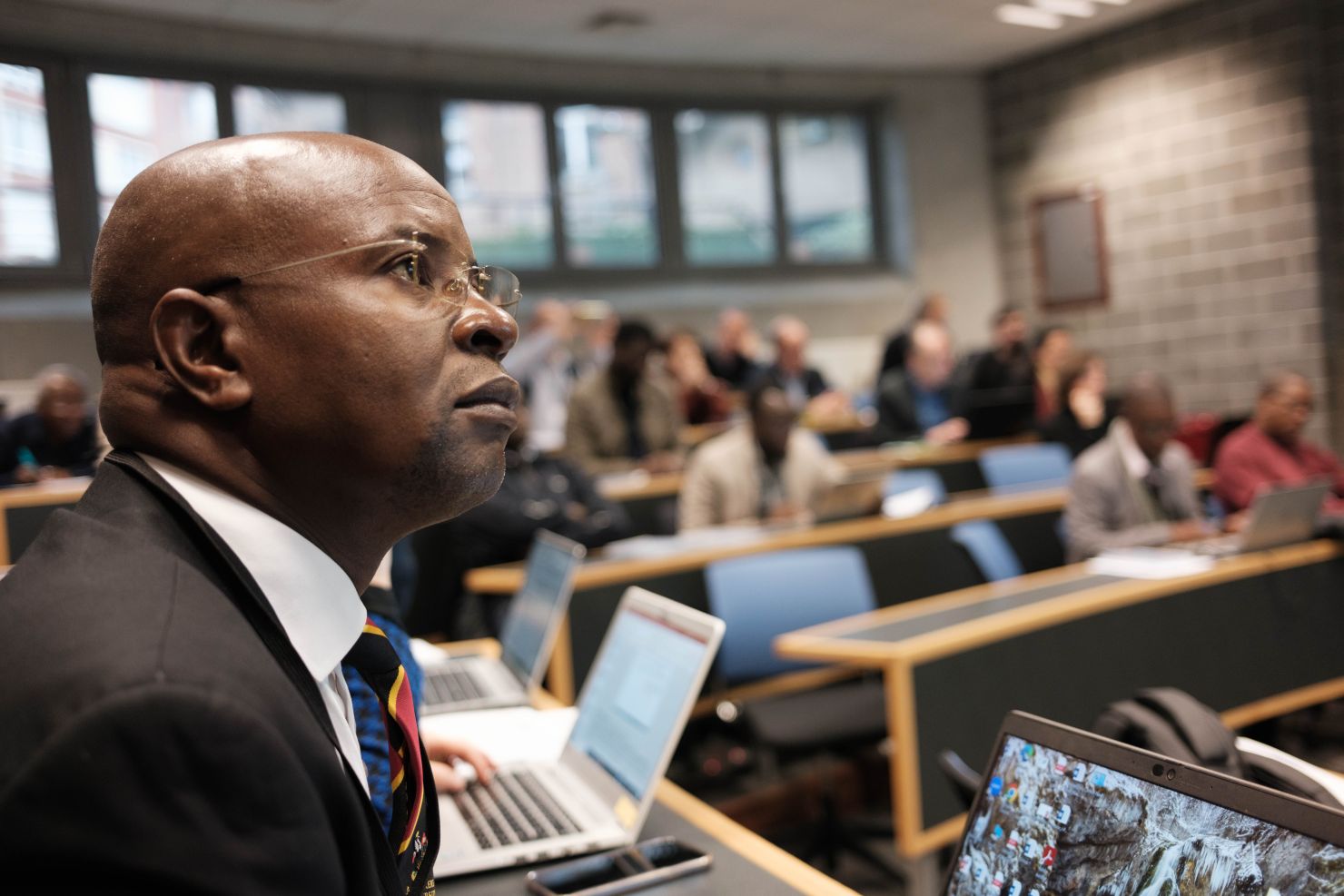
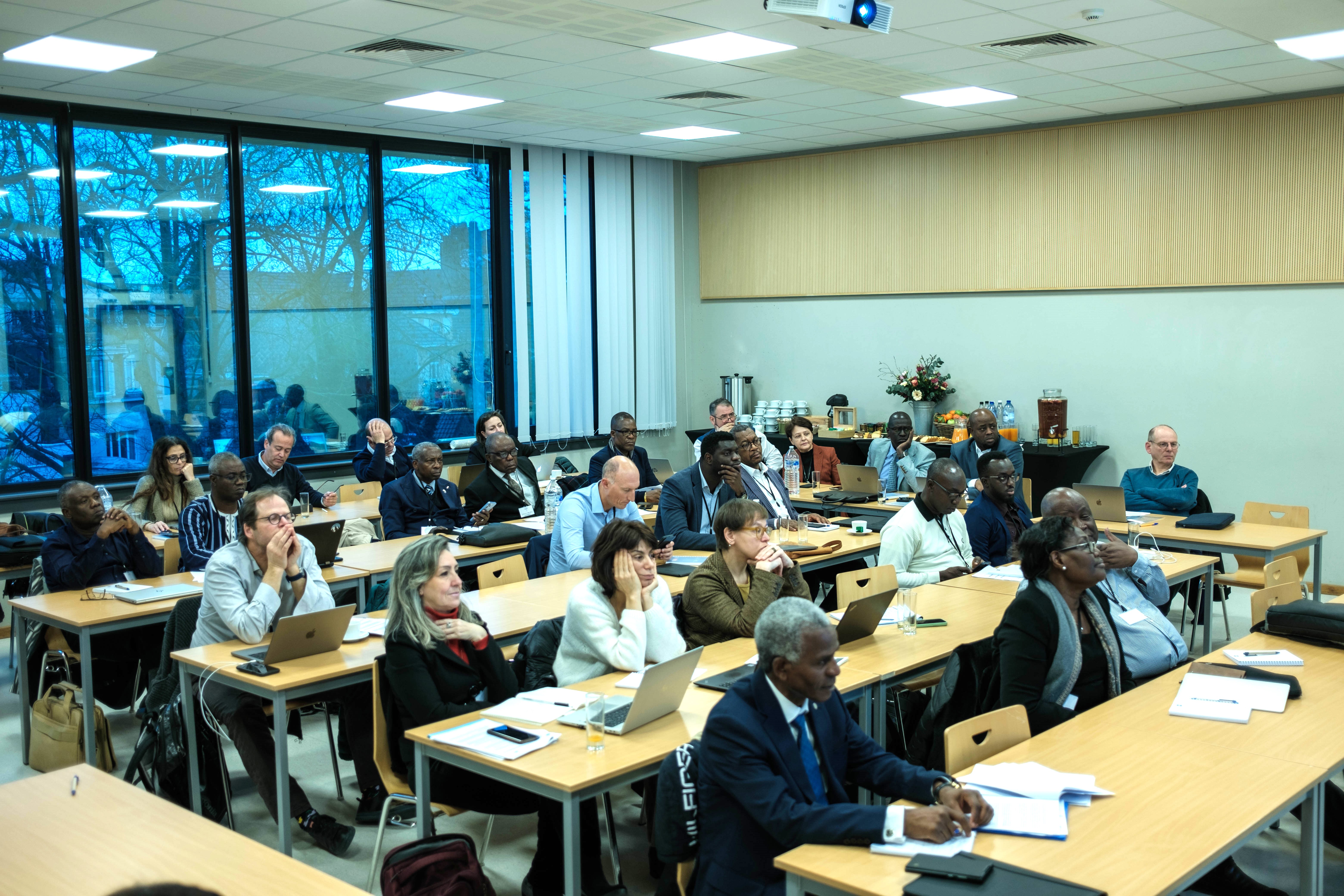
A unique transdisciplinary project
The PolyCIVIS project works to promote insight and collaboration, dedicated to shedding light on the complex and interconnected nature of the main challenges gripping our world. This three-year collaboration empowers academics, researchers and policymakers to develop a deeper comprehension of the intricate dynamics at play and to enact meaningful change.
As we gathered for the first PolyCIVIS Conference, we embarked on a journey of exploration and collaboration, delving into the complexities of the polycrisis and charting a course towards a more sustainable and equitable future.
The 4-day conference allowed discussions, presentations and sharings with an interdisciplinary approach. It included:
- a keynote speech from Malte Brosig “From Neologism to Promising Research Agenda? The Global Polycrisis and IR”;
- a Chatham House rule-based Agora Forum: The EU-Africa Joint vision for 2030 in the face of polycrisis: democracy and security challenges;
- two parallel all-day roundtables with researchers, officials and civil society figures to discuss different dimensions of the polycrisis:
- Democratic and Rule of Law challenges facing African and European Polities (moderated by Andrew Bradley & Bruno Theodoro Luciano)
- Disputes and Violent Conflicts threatening African and European Security (moderated by Dan Schreiber and Darlington Tshuma)
- presentations of the project’s Research, Policy and Education Work Packages to highlight their scope and work progression, as well as, to outline their specific objectives and milestones within the project;
- ongoing discussions in relation to the priorities and follow-up actions and deliverables of the project’s first year, ending in September 2024.
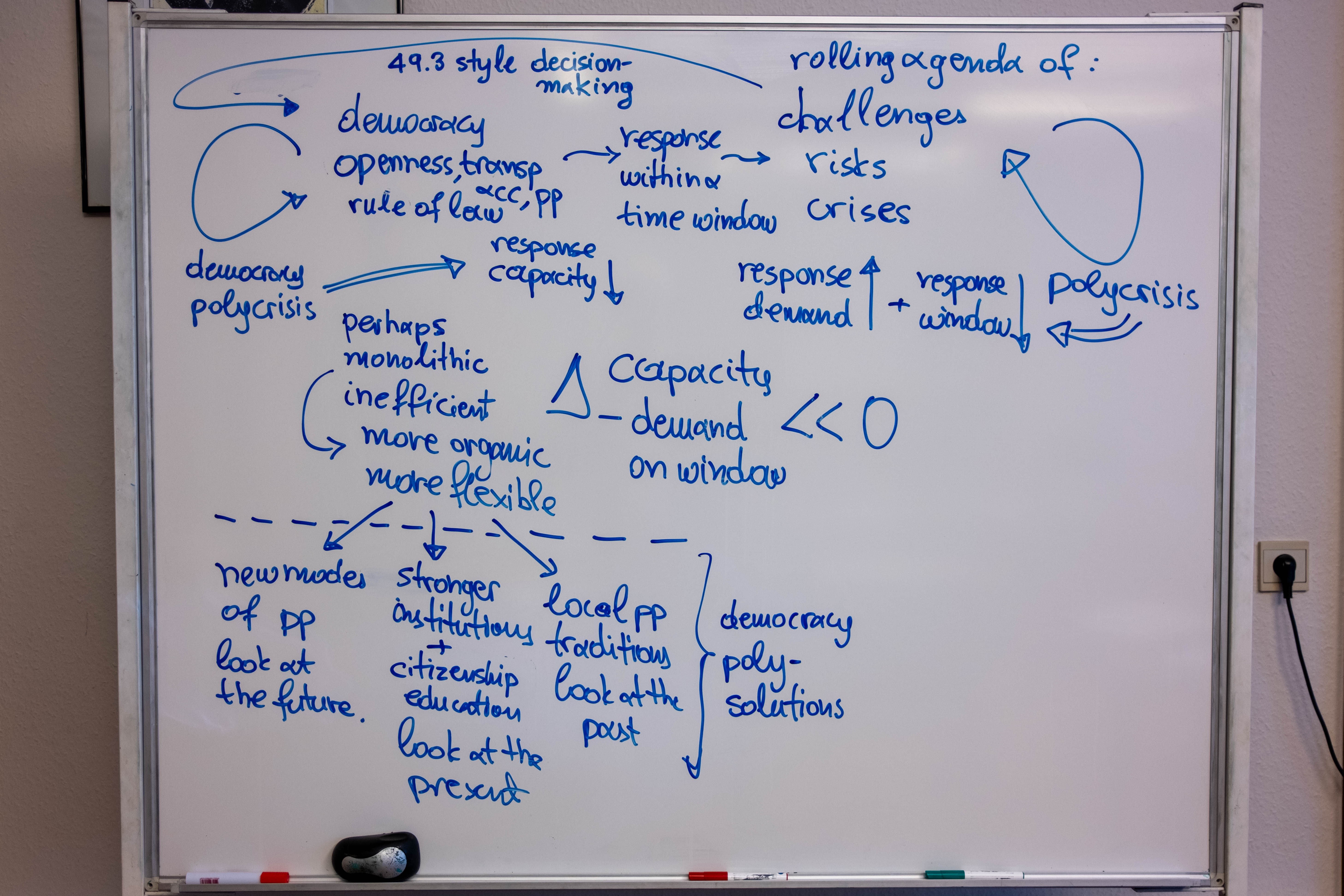
Photo: François Heinderyckx© 2024
A CIVIS Alliance project guides a holistic approach to polycrisis
History has shown us that each crisis comes with significant and multi-layered social, political, environmental and economic effects. A holistic approach is therefore needed when it comes to researching solutions in both Africa and Europe. Within the framework of PolyCIVIS this approach has the following features:
- tailored for Europe and Africa;
- holistic, i.e. aiming to integrate the most relevant aspects of research, science, literature, in global, regional and sub-regional contexts;
- interdisciplinary, i.e. aiming to research novel tools for enabling sustainable solutions across disciplinary clusters;
- adaptive, i.e. focused on responding to some of the key crisis of today while preparing us for the future.
A highlight of the conference was undoubtedly the keynote speech by Prof Dr. Malte Brosig, from University of the Witwatersrand.
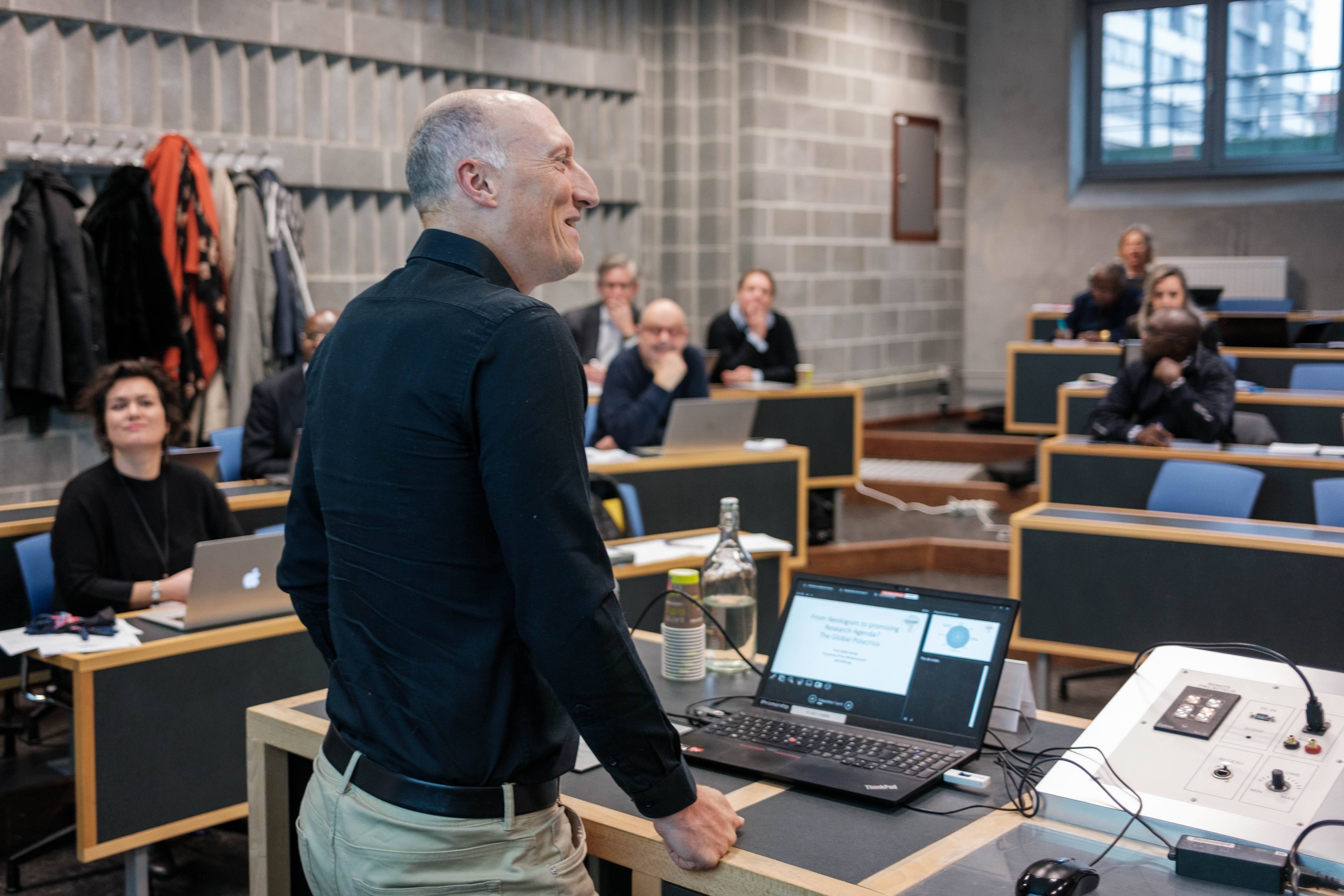
Photo: François Heinderyckx© 2024
His speech stimulated critical thinking and brought attention to significant issues regarding the polycrisis, the (limited) existing literature, the undeniable planetary boundaries, and the holistic approach that needs to be adopted:
The greater the clarity and focus on what the polycrisis actually is, the more specific we can get in finding (poly)solutions which can be effective, sustainable and precise", mentioned prof. Brosig.
He invited the audience to explore the polycrisis as a system that crosses boundaries and creates vital problems that affect us both at an individual and a global level. This system has many unknowns that need to be addressed, and there is no previous knowledge of how to approach such a complex territory.However, a counterargument that was also presented is the importance of acknowledging human agency as means to make informed decisions:
"Human agency refers to the human capability to influence one's functioning and the course of events by one's actions", as explained by social psychologist Albert Bandura.
Hence, contrary to the belief that we as humans have limited capacity to determine our future, we can use existing literature, past experiences and the tools we already have, to alleviate negative effects of any given danger or challenge. An example to support this argument was the major global effort to create -as quickly and safely as possible- a vaccine to tackle the Covid 19 pandemic.
A Euro-African approach across research, policy and teaching
The project’s global scope intends to reinforce interdisciplinary research, policy and training on Euro-African relations provided across various departments of partner universities. The conference created space for the 11 European and 6 African CIVIS Alliance members, as well as 4 non-CIVIS African Universities, to bring their own experience, research and contribution arising from the different contexts each country, region and continent experiences to date.
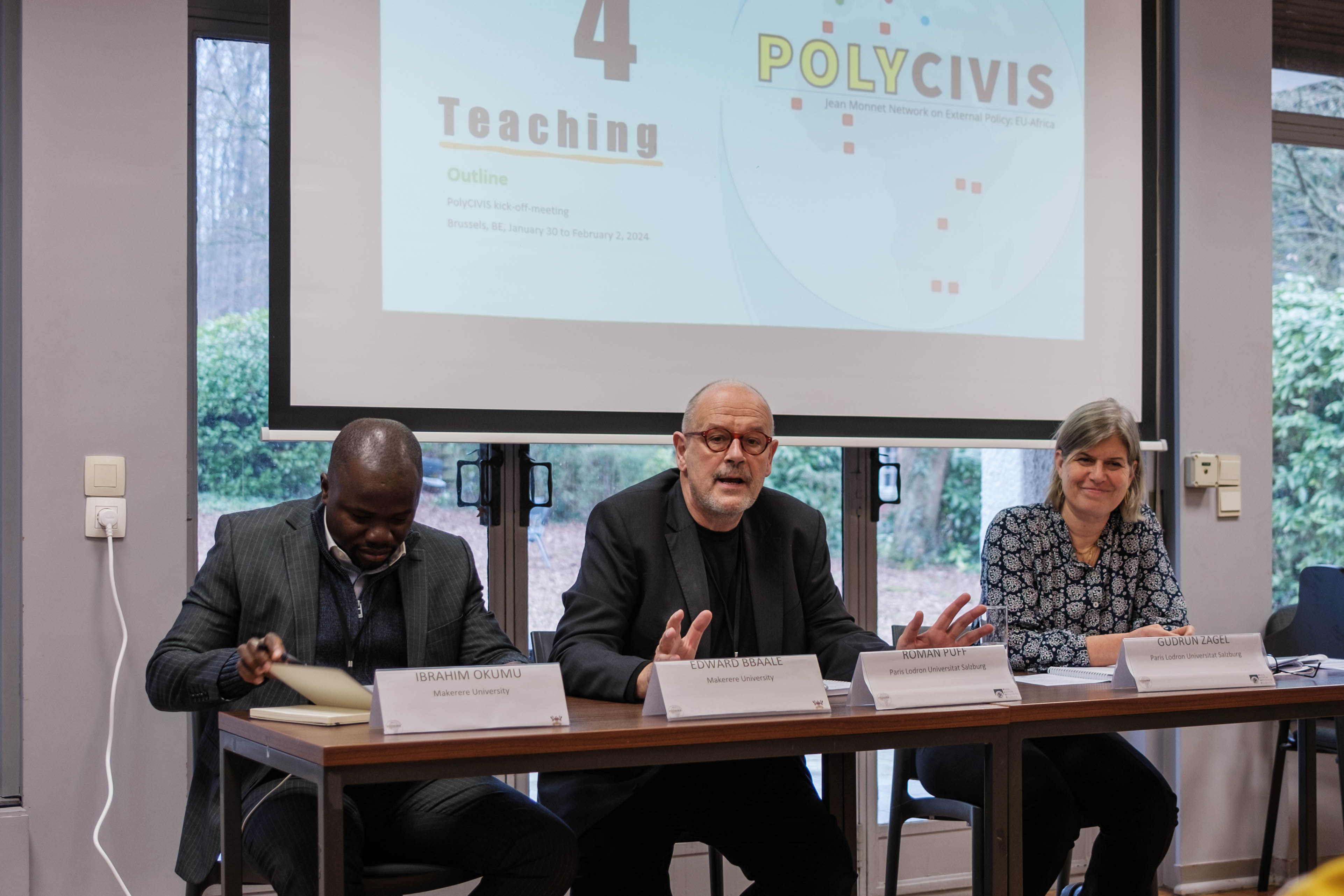
Conclusion
The PolyCIVIS Conference marked a significant milestone for the project and served as a valuable platform for learning and exchange among project partners representing diverse strands, fields of expertise, and regional backgrounds.
The event showcased exemplary organization and leadership from the project leader, facilitating fruitful exchanges among academics, scientists, and administrative professionals from across the globe. There was a clear consensus that the connections forged during the conference will persist, guiding future strategic decisions for implementing project work packages.
Essentially, the it demonstrated the great potential of the Network, and the willingness to build trust, foster common understanding and find solutions both within the PolyCIVIS community and beyond.
Stay updated with PolyCIVIS news and join us on our journey to establish an intercontinental, diverse, and interdisciplinary network.
